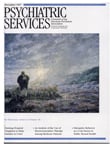This book, part of the publisher's series on lifestyles and issues in aging, can be described as a monstrous hybrid of New Age pseudoscience and self-confession masquerading as a guide for clinicians in geriatrics and gerontology. The author attempts to combine a bewildering hodgepodge of theory, including transactional analysis, gestalt therapy, transpersonal psychology, psychocybernetics, self-help, "inner child," "recovery movement," and psychological typing, into what she says can also be "a practical guide for those of you who are adult children (often co-Victims) of toxic parents."
The author combines elements from various holistic self-help movements, including the codependency arena, into her own "Davenport theories and hypothesis." The result is an almost unreadable work that requires its own glossary, which includes terms such as "dis-ease," "woundology," and "warm fuzzies," to define the pop-psychology jargon that permeates the book. For trying to decipher the title, which refers to the "difficult elder" as "toxic," the author's definition of toxicity as "a character maladaption that produces a negative energy of Victim consciousness" gives the reader a good idea of the direction in which this book is heading. The author, a former professor at Santa Ana (Calif.) College, has a background in pastoral counseling, earned her Ph.D. at the age of 63, and has worked many years in the human services field in Orange County, California.
The book is divided into five sections. Part 1 attempts to define the concept of a "toxic ager," the author's term for elderly patients who "infect" those around them, including therapists with "negative energy" created by their maladapted personalities. Part 2 explores the impact of this group on others. Part 3 examines possible etiologies for "toxicity" and introduces the concept of the Enneagram, a nine-sided mandala-type shape that is used for personality typing.
Part 4 suggests tools for clinicians, which includes attending workshops and support groups for "Adult Children of Toxic Agers (ACTA)," originated by the author in 1992. The final section is dedicated to professional wellness and includes suggestions such as the use of self-affirmations and mailing yourself love notes.
Extracting useful clinical information from this bizarre and fragmented landscape is a dizzying effort. Abandon all scientific inquiry, ye who enter here. The book includes a 44-question "Self-Assessment Toxicity Indicator" whose "scoring is strictly arbitrary." As the author points out, "Any validity is found only through what you give to it."
Readers looking for a practical, scientifically grounded clinical guide for working with challenging elderly patients should avoid this volume. The most useful aspect of reviewing this book for me was discovering a Web page by Robert T. Carroll called The Skeptic's Dictionary (skepDic.com) as I attempted to research some of the theories presented in this volume. This site provides a witty and useful analysis of many topics discussed in this book, such as the Enneagram, that constitute the widening field of New Age pseudoscientific healing movements.

